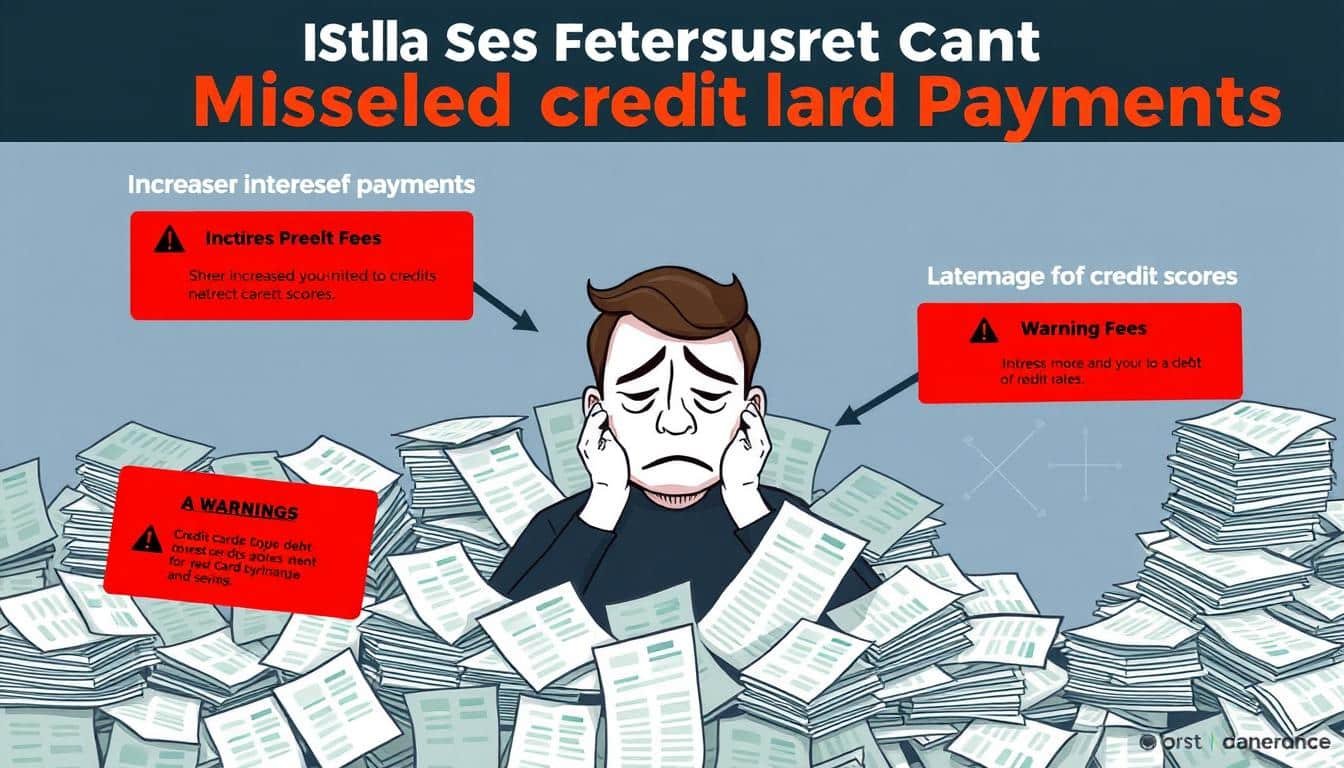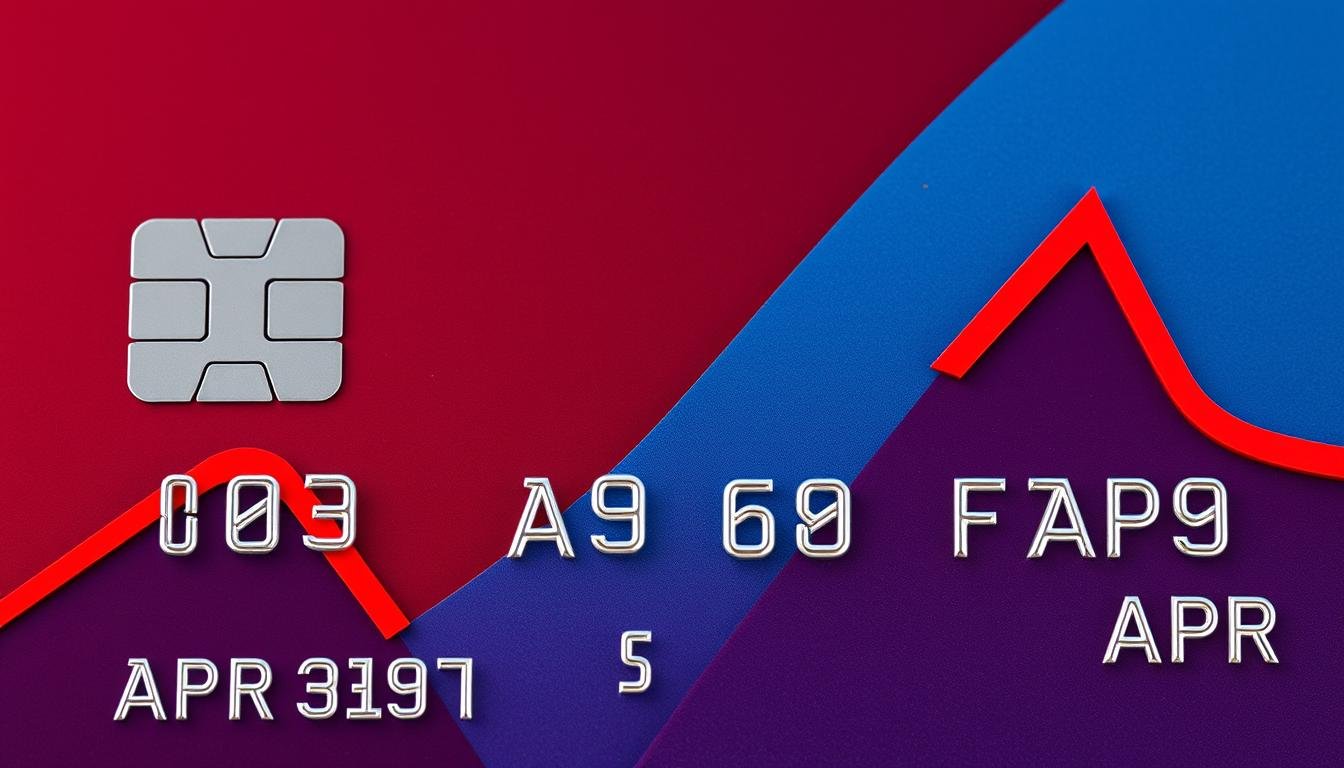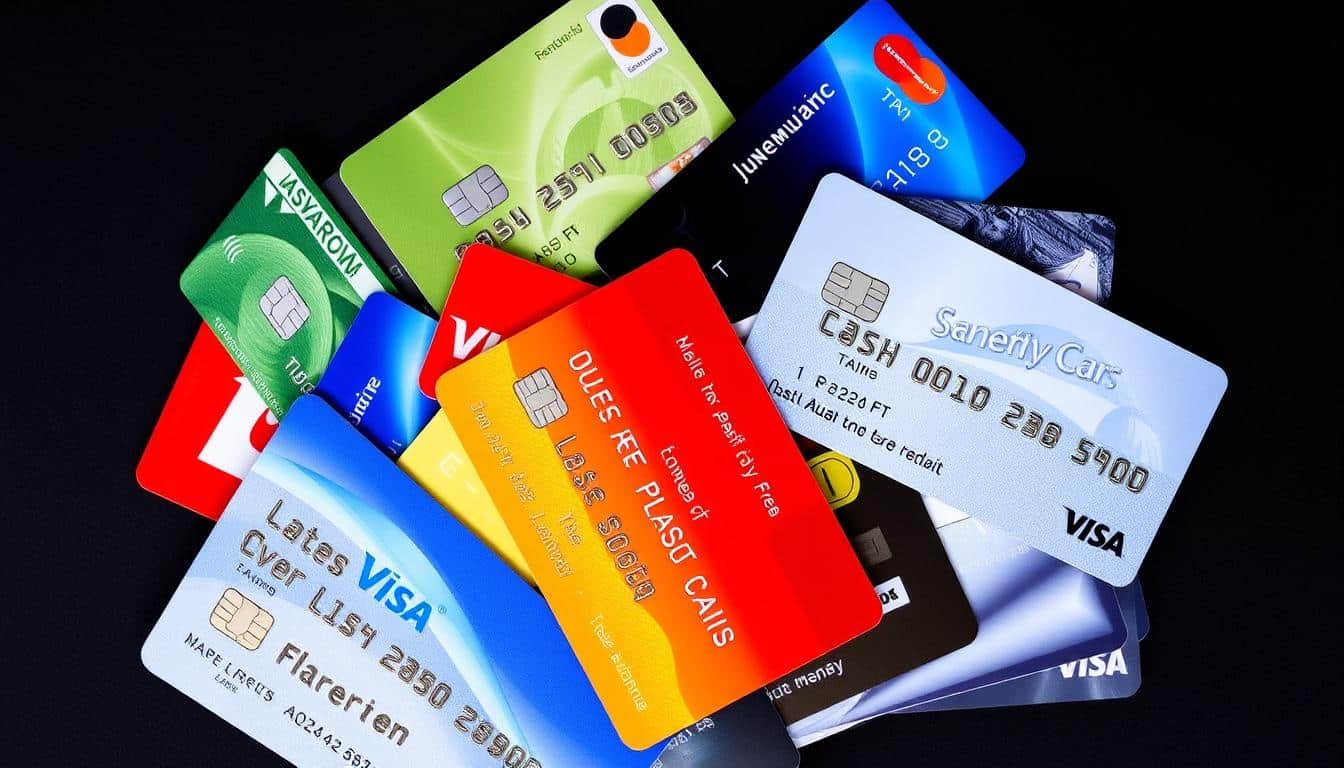Credit cards are a big part of our financial lives today. They make buying things easy and flexible. But, they can also lead to penalties that can hurt your wallet. We’ll look at the most common credit card penalties and how to dodge them in this article.
The Credit Card Accountability Responsibility and Disclosure (CARD) Act of 2009 changed the game. It made credit card companies show all fees and charges upfront. This law helps protect consumers from unfair practices by making sure they know the costs before they sign up.
Key Takeaways
- Credit card penalties can significantly impact your finances if not managed properly.
- The CARD Act of 2009 mandates credit card issuers to disclose all fees and charges, providing consumers with greater transparency.
- Common credit card penalties include annual fees, late payment fees, over-the-limit fees, and penalty APRs.
- Strategies to avoid credit card penalties include paying at least the minimum payment on time, staying within your credit limit, and carefully reviewing your card’s terms and conditions.
- Understanding the different types of credit card penalties and how to avoid them can help you maintain a healthy financial profile and maximize the benefits of using credit cards.
Introduction
Credit cards are a big part of our financial lives today. They offer convenience, flexibility, and rewards. But, they also have fees and penalties that can add up fast. It’s important for people to know about these penalties to avoid mistakes and keep their finances healthy.
Definition of Credit Card Penalties
Credit card penalties are extra charges from credit card companies. They happen for things like paying late or going over your limit. These are listed in the agreement you sign when you get your card. It’s important to read this carefully before you start using your card.
Importance of Understanding Credit Card Fees
Knowing about credit card fees and penalties helps people make smart money choices. It helps them avoid surprise charges. By understanding these fees, you can manage your spending and keep your credit score good. This also lets you stand up for your rights under the CARD Act of 2009.
| Credit Card Penalty | Description | Average Fee |
|---|---|---|
| Late Payment Fee | Charged for making a payment after the due date | $29 |
| Over-the-Limit Fee | Charged for exceeding your credit limit | $35 |
| Penalty APR | Increased interest rate applied for late payments or other violations | Up to 29.99% |
“Consumers should carefully review their credit card agreements to understand the various fees and penalties they may face. Staying informed is the best way to avoid unexpected charges and maintain control over their finances.”
Annual Fees

Many credit cards have an annual fee. These fees can be from $95 to over $500. Some cards might not charge you the first year. But, you can find ways to skip these fees and still get the perks of a credit card.
How to Avoid Annual Fees
Choosing a no annual fee card is the easiest way to dodge fees. Cards like the Citi Double Cash® Card and the Wells Fargo Active Cash® Card offer great rewards and perks without an annual fee.
If you have a card with an annual fee, you might get it waived or lowered. Ask for a retention offer to keep your business. Card companies often want to keep you as a customer. They might offer a lower fee or waive it.
Downgrading your card to a no annual fee version is another choice. This way, you avoid the annual charge but still get many benefits.
By exploring your options and acting early, you can easily dodge annual fees on your credit cards. This helps you get the most value from your cards.
“The key to avoiding annual fees is to do your research and choose a credit card that fits your spending habits and financial goals without unnecessary charges.”
credit card penalties

Credit cards can have penalties and fees that might surprise you if you’re not careful. It’s important to know about these credit card penalties to manage your money well and avoid unexpected costs.
Late Payment Fees
Late payment fees happen when you don’t pay the minimum payment on time. These fees start at $30 for the first time and can go up to $41 for later payments in six months. Even without a late fee, missing payments can hurt your credit score by affecting your payment history.
Over-the-Limit Fees
Over-the-limit fees occur if you go over your credit limit. But, you can avoid this fee by not choosing it with your credit card issuer. The CARD Act requires you to agree to this fee first.
Penalty APRs
Penalty APRs are higher interest rates for breaking the card’s rules, like missing a payment. These rates can be as high as 30%, making carrying a balance more expensive. To dodge these fees, look into cards like the Petal® 2 “Cash Back, No Fees” Visa® Credit Card or the Citi Simplicity® Card. They don’t charge late fees or penalty APRs.
Interest Charges and APRs

Understanding interest charges and APRs is key with credit cards. Credit cards charge interest if you don’t pay off the full balance each month. This interest rate is called the annual percentage rate (APR).
Most credit cards have variable APRs that change with the prime rate. Some cards have fixed APRs that stay the same, no matter the market. To dodge interest charges, pay your balance every month.
If you can’t pay off your balance, look into a 0% APR credit card. These cards offer up to 21 months without interest charges. The Capital One QuicksilverOne Cash Rewards Credit Card and the U.S. Bank Visa® Platinum Card are great options. Just make sure to clear your balance before the intro period ends to avoid interest charges.
| Credit Card | Intro APR | Regular APR | Annual Fee |
|---|---|---|---|
| Capital One QuicksilverOne Cash Rewards Credit Card | 0% for 15 months | 26.99% – 28.99% (Variable) | $39 |
| U.S. Bank Visa® Platinum Card | 0% for 20 months | 16.24% – 26.24% (Variable) | $0 |
Always make the minimum payment each month to avoid late fees and keep a good credit score. Setting up autopay can help you never miss a payment.
“Staying on top of your interest charges and APRs can help you make informed decisions about your credit card usage and avoid costly surprises.”
Other Common Credit Card Fees

When you use a credit card, you should know about different fees. These fees can affect your money if you’re not careful. There are more fees besides the annual fee.
Balance Transfer Fees
Transferring a balance to another credit card comes with a fee. This fee is usually 3-5% of the amount you’re moving. For instance, moving $5,000 could cost you $150-$250.
Cash Advance Fees
Getting cash from your credit card also has a fee. This fee is 3-5% of what you take out. So, $500 in cash might cost you an extra $15-$25.
Foreign Transaction Fees
Using your credit card abroad can lead to a foreign transaction fee. This fee is about 3% of your purchase. It’s charged by the card issuer for currency conversion costs.
To dodge these fees, look for a card with no balance transfer, cash advance, or foreign transaction fees. Cards like the Capital One Platinum Credit Card or the Charles Schwab Debit Card are good options. Knowing and managing these fees helps you get more from your credit card and saves money.
Also Read : What Are The Types Of Credit Risks?
Conclusion
Credit cards can have many fees and penalties that affect your money if not handled right. It’s key to know about late payment fees, over-the-limit fees, penalty APRs, annual fees, balance transfer fees, cash advance fees, and foreign transaction fees. This knowledge helps keep your credit in good shape and avoids extra costs.
To cut down on these credit card fees and credit card penalties, check your credit card agreement well, pay your bill on time, and keep your spending below your credit limit. Pick cards that fit your spending and likes. Being proactive and informed helps you save money and keeps your credit score and payment history strong. This gives you more financial freedom and stability.
Knowing about these common credit card fees and how to avoid them can greatly improve your finances. Stay alert, make smart choices, and manage your credit card use well. This ensures a good effect on your minimum payment and autopay habits over time.
FAQs
Q: What is a credit card late fee?
A: A credit card late fee is a penalty charged by a card issuer when a credit card payment is not received by the due date. This fee is typically added to your credit card account as a way to encourage timely payments.
Q: How much can a late fee amount to?
A: The late fee amount can vary by card issuer, but it typically ranges from $25 to $40 for the first late payment. Subsequent late payments may incur larger fees, which can increase depending on the terms of your credit card agreement.
Q: What is a returned payment fee?
A: A returned payment fee is a penalty charged when a payment made to your credit card account is not honored by your bank, often due to insufficient funds. This fee is separate from a credit card late fee and can also be charged by the card issuer.
Q: How does the CFPB regulate penalty fees?
A: The Consumer Financial Protection Bureau (CFPB) monitors the credit card market and sets regulations to protect consumers from excessive penalty fees, including credit card late fees and returned payment fees. They ensure that fees are reasonable and clearly disclosed.
Q: Can a credit card issuer charge a penalty APR?
A: Yes, a credit card issuer can charge a penalty APR, which is a higher interest rate applied to your credit card balance if you miss payments or exceed your credit limit. This rate is typically higher than your standard APR and can significantly increase your credit card interest charges.
Q: What happens if I exceed the credit limit?
A: If you exceed your credit limit, your card issuer may charge an over-limit fee, and you may also be subject to a penalty APR. Additionally, exceeding your limit can negatively impact your credit score and access to credit in the future.
Q: What are the best practices to avoid credit card penalty fees?
A: To avoid credit card penalty fees, make payments on time, monitor your credit card bill regularly, and ensure you have sufficient funds in your bank account for payments. Setting up automatic payments or reminders can also help prevent late payments.
Q: How do penalty fees affect my credit card debt?
A: Penalty fees can increase your overall credit card debt by adding to the balance you owe. This can lead to higher credit card interest charges over time and may make it more challenging to pay off your debt, impacting your financial health.
Q: What should I do if I cannot pay my credit card bill on time?
A: If you cannot pay your credit card bill on time, it is advisable to contact your card issuer as soon as possible. Some issuers may offer grace periods or waive the first late fee, especially if you have a good payment history. Communication is key to managing your credit card account effectively.




